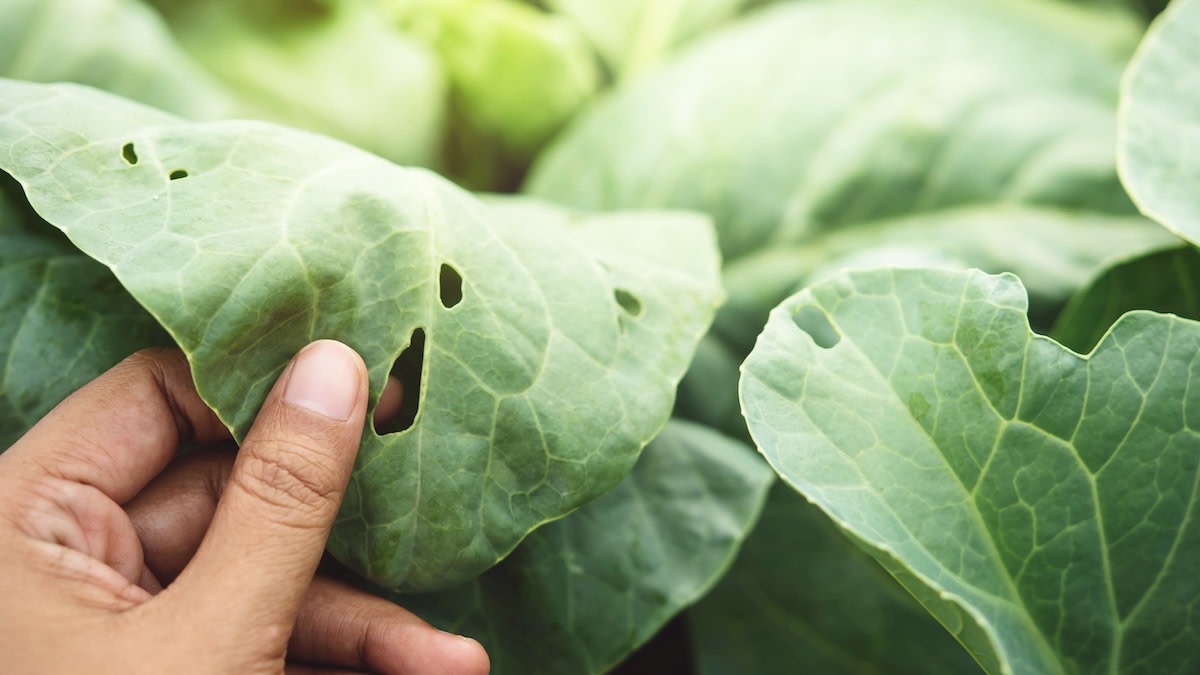How to Get Rid of 7 Common Garden Pests
Written by MasterClass
Last updated: Jun 7, 2021 • 3 min read
Pest control is one of the hardest tasks for vegetable gardeners. At some point, all home gardeners find themselves going toe-to-toe with creatures whose presence they are unwilling to tolerate. Pest problems can easily destroy all sorts of plants, from hardy vegetable crops to common houseplants.
Learn From the Best
How to Get Rid of 7 Common Garden Pests
When it comes to facing off against garden pests—from leaf miners to cabbage loopers to squash vine borers—there are a variety of methods of DIY pest control that can help you combat insects in your garden.
- 1. Flies and mites: Mixing isopropyl rubbing alcohol with water creates an effective spray that can kill vegetable garden pests like whiteflies and red spider mites. You can also engage in some companion planting to keep out bugs that would otherwise feast on your crops. Marigolds will help get rid of whiteflies. Companion planting is an integrated form of pest management that is time-tested and fills your garden with sumptuous blossoms.
- 2. Slugs: To kill slugs, fill shallow plastic containers with beer and leave them recessed into the earth so that the top of the container is flush with the soil—attracted to the nutrient-rich liquid, these slimy critters will slither in and drown.
- 3. Aphids: Aphids are one of the most destructive garden insects and can quickly kill otherwise healthy plants. Aphids weaken vegetable plants by sucking plant juices and spreading diseases that hinder plant growth. When aphids feed on plants, they secrete a sticky liquid called honeydew, which collects on the undersides of leaves. Honeydew is a telltale sign that you have an aphid infestation. Aphids can be kept under control by spraying infested plants with soapy water (a ratio of five tablespoons of dish soap per gallon of water works well—use an all-natural Castille soap). You can also buy specialty insecticidal soap or horticultural oil to eradicate aphids. If you’d rather not invest in a chemical or oil spray, beneficial predatory insects like ladybugs and parasitic wasps can help control aphid populations. Lacewing larvae are another natural predator that feeds on aphids.
- 4. Beetles: There are many varieties of adult beetles that can lay waste to a home garden. These include Japanese beetles, cucumber beetles, asparagus beetles, Mexican bean beetles, flea beetles, and Colorado potato beetles. Homemade pepper spray made from hot peppers and garlic can deter some beetles. Neem oil is effective against cucumber beetles, particularly when they are still in the larvae stage of their life cycle.
- 5. Cutworms and tomato hornworms: Cutworms are moth larvae that feed at night, generally damaging the stems and roots of plants. You can handpick them from your plants at night, or encircle your plant stems with diatomaceous earth a natural white powder made of crushed rock that kills insects. Tomato hornworms are a type of caterpillar that feeds on nightshades. Beneficial insects like wasps, ladybugs, and lacewings are all good bugs for dealing with hornworms, though the most effective way to control them may be handpicking.
- 6. Maggots: Maggots burrow into soil and mulch to feed on plant roots. Pouring hot water over maggots is a quick and easy way to get rid of an infestation. To prevent maggots from reinfesting, remove all food sources, and never reuse soil when potting a plant.
- 7. Larger animals: As if insect pests aren’t enough of an issue, you have a whole army of mammals to worry about: deer, squirrels, raccoons, rabbits, birds, gophers, and more. The only sure-fire method to keep mammals out is a physical barrier. Depending on who’s nosing around the garden, you may find you need fencing not just around the perimeter of your beds but on top (use lightweight plastic mesh or row covers to exclude birds) and bottom as well (install galvanized steel mesh under your beds to keep ground-dwelling rodents from burrowing in).
Learn More
Grow your own food with Ron Finley, the self-described "Gangster Gardener." Get the MasterClass Annual Membership and learn how to cultivate fresh herbs and vegetables, keep your house plants alive, and use compost to make your community - and the world - a better place.
